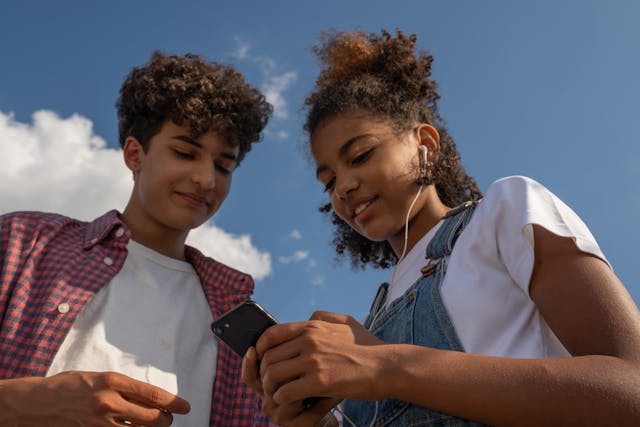Home » News » 2024 » December
News Brief
Dec. 4, 2024Washington |
By: Shauneen Miranda - Missouri Independent
U.S. Education Department pings states, schools to set policies on cellphone use

By Shauneen Miranda - Missouri Independent
WASHINGTON — The U.S. Education Department called on every state, school and district on Tuesday to adopt policies on cellphone use in schools.
The department asks schools to have well-thought-out policies on the matter, but does not dictate exactly what those policies should be. An accompanying resource for schools notes the risk social media can pose to students’ mental health.
“In this digital age, every elementary, middle, and high school should have a clear, consistent, and research-informed policy to guide the use of phones and personal devices in school,” U.S Education Secretary Miguel Cardona said in a written statement.
“The evidence makes clear: there is no one-size-fits-all policy,” Cardona added, noting that “different school communities have different needs, and the nuances of this issue demand that local voices — parents, educators, and students — inform local decisions around the use of personal devices in school.”
The department acknowledged the role cellphones can play in keeping parents connected to their kids, especially in emergency situations, while also highlighting the increasing evidence on the harms social media can have on youth mental health, such as sleep deprivation and depression.
Increasing state policies
An increasing number of states and school districts have enacted policies either prohibiting or restricting students from using their cellphones in the classrooms.
Across the country, schools and districts continue to grapple with how to deal with kids’ cellphone use, and more than half of all states have sought to ban or restrict cellphone use in classrooms.
As of early November, at least eight states have passed statewide policies that either limit or prohibit cellphone use in the classrooms, according to KFF.
That includes California, Florida, Indiana, Louisiana, Ohio, South Carolina and Virginia. A Minnesota law forces schools to adopt a policy on cellphone use by March 2025.
A handful of other states’ education departments have issued policy recommendations or pilot programs, while lawmakers in several more have introduced statewide legislation regarding cellphone use.
The guidance from the U.S. Education Department coincides with the release of a resource for education officials and local communities on adopting cellphone use policies.
In the playbook, Cardona points to U.S. Surgeon General Dr. Vivek Murthy’s public warning in 2023 on social media’s effects on youth mental health.
Murthy warns: “More research is needed to fully understand the impact of social media; however, the current body of evidence indicates that while social media may have benefits for some children and adolescents, there are ample indicators that social media can also have a profound risk of harm to the mental health and well-being of children and adolescents.”
![]()






